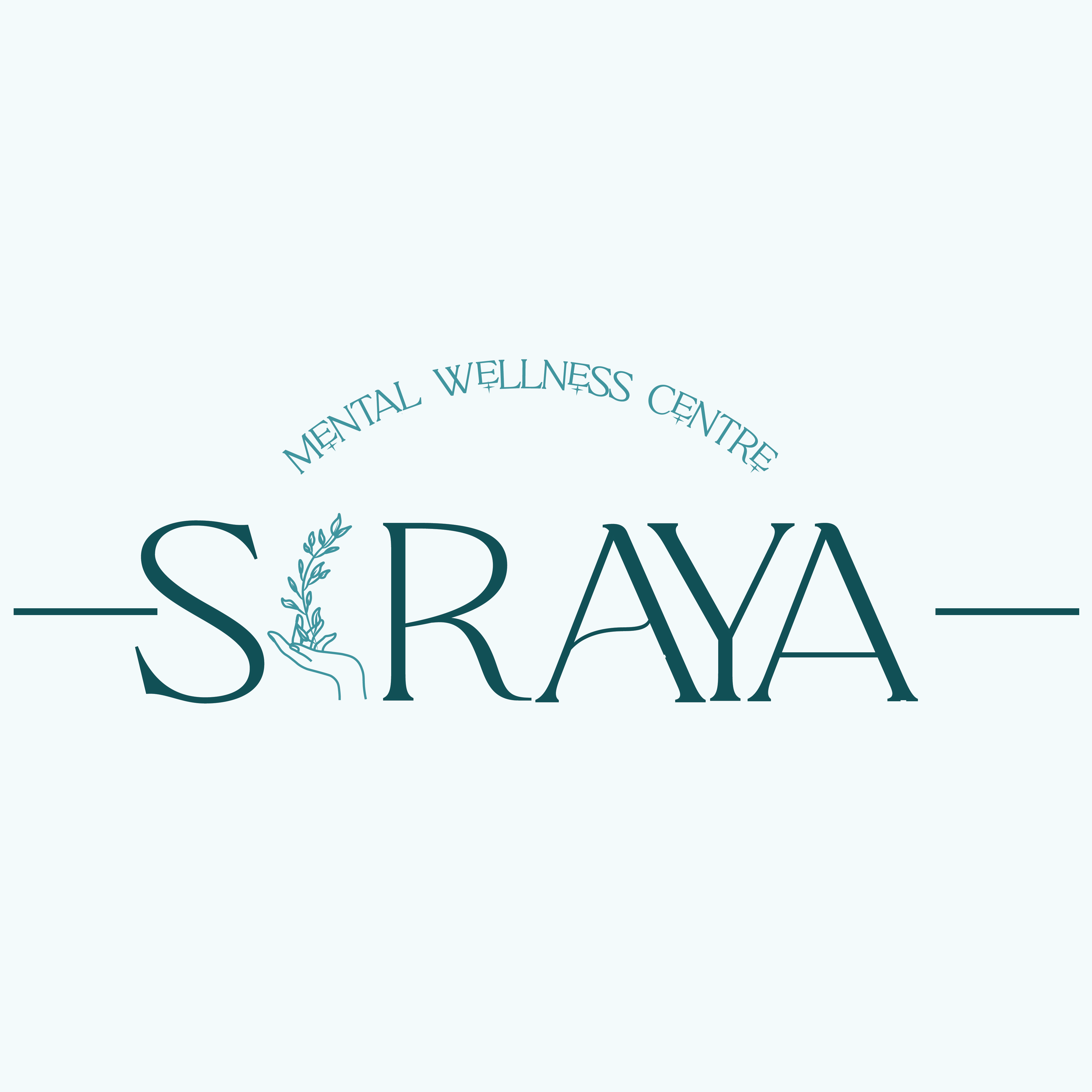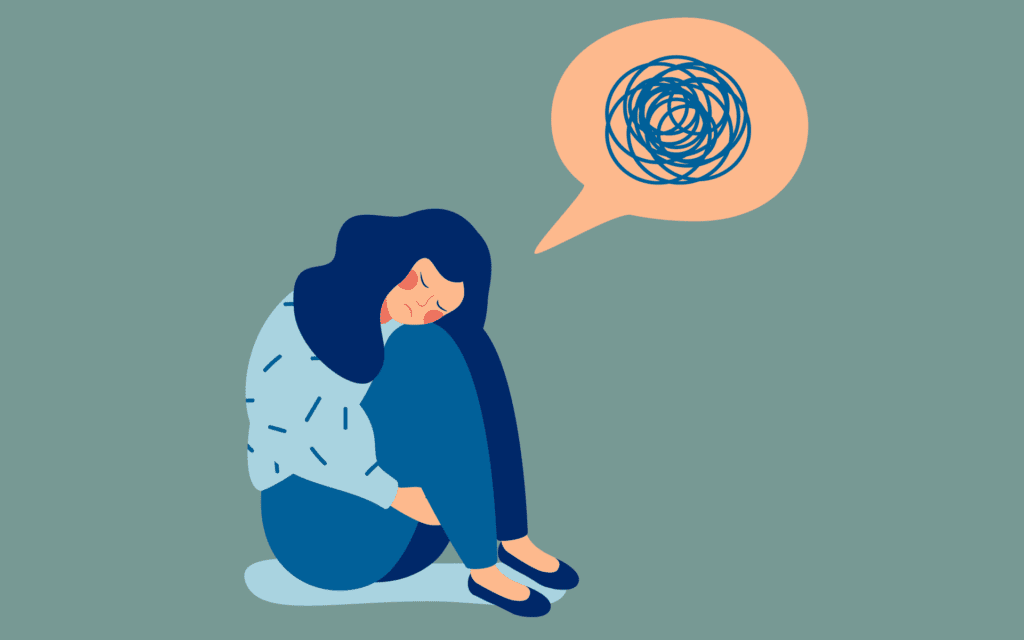Occasional anxiety is a normal part of life.Anxiety is a normal reaction to stress and can be beneficial in certain situations. It can alert us from danger to also prepare us for a few situations. For example, speaking in front of a group can make us anxious, but that anxiety also motivates us to prepare and practice.
However, people with anxiety disorders have intense, excessive and persistent worry and fear about day to day situations on a frequent basis. Anxiety disorder is different from your normal feeling of nervousness. Anxiety affects nearly 30% of adults at some point of time in their lives. But it is important to know that anxiety disorders are treatable and different treatments are available.
What are the symptoms of anxiety disorder?
The general symptoms of anxiety disorder include-
Physical symptoms-
- Cold & sweaty hands
- Dry mouth
- Heart palpitations
- Nausea
- Numbness or tingling in hands or feet
- Muscle tension
- Shortness of breath
Mental symptoms-
- Feeling panic, fear and uneasiness
- Nightmares
- Repeated thoughts or flashback of traumatic experience
- Uncontrollable thinking
- Anticipating the worst possible consequence
Behavioural symptoms-
- Inability to be still and calm
- Ritualistic behaviours
- Trouble sleeping
- Avoiding anything that triggers anxiety
- Restlessness
What causes anxiety disorders?
Like any other mental illness, anxiety disorder is not from personal weakness, character flaws. There is no exact cause for anxiety disorder but a combination of factors that can play a role.
- Chemical imbalance- Long lasting stress can alter the chemical balance that controls your mood. Experiencing stress over a long period of time can lead to an anxiety disorder.
- Environmental factors- Experiencing traumatic events such as death, violence, abuse can also trigger anxiety in an individual.
- Heredity- Anxiety disorders tend to run in families. You are more likely to develop anxiety if either of your parents was already suffering through it.
Types of Anxiety disorders-
There are different types of anxiety disorders. They are-
- Generalised anxiety disorder
- Panic disorder
- Phobia, specific phobia
- Social anxiety disorder
- Separation anxiety disorder
- Generalised Anxiety Disorder- A person with GAD feels excessive & exaggerated anxiety and constant worry about everyday life events for no rational reason. They tend to always expect the worst possible outcome and cannot stop worrying at all. Everyone feels anxiety but people with GAD, their worry is extremely unrealistic and may seem out of proportion. They are always in a state of fear, worry and dread. This makes it difficult to carry on with day-to-day tasks, work, school or even maintain relationships.
- Panic disorder- Panic disorder is diagnosed when you have 2 panic attacks and there is constant worry and change in routine to avoid the panic attacks. A panic attack is an extreme fear that can occur at anytime & anywhere. The signs of a panic attack are-
- Sense of danger
- Pounding heartbeat
- Sweating
- Shaking/trembling
- Shortness of breath
- Headache
- Chest pain
- Choking feeling
- Nausea
- Feeling dizzy
- Chills/ hot flashes
- Numbness
- Feeling unreal
- Fear of losing control
- Fear of dying
The attack lasts for at least 5 to 10 min. It can feel like you are having a heart attack or a stroke.
- Phobia- Phobia is a type of anxiety disorder that causes an individual to experience extreme and irrational fear about a situation, a person, animal, place or an object. A person with phobia will shape their lives in order to avoid what they consider to be a threat or dangerous. Specific phobia is irrational and intense fear towards one trigger. Different types of phobia are-
- Agoraphobia
- Social phobia
- Claustrophobia
People with phobia may experience the following-
- Uncontrollable anxiety when exposed to the trigger
- Feeling that trigger or fear has to be avoided
- Difficulty functioning properly when exposed
- Knowing that fear is irrational, unreasonable and exaggerated.
- Social anxiety disorder– In this, the person has fear of being judged by others or watched in social situations. They are anxious about social situations as there is fear of being criticised, judged, rejected or humiliated. They are also worried about appearing anxious, trembling or others thinking about how awkward they look. Few have strong physical symptoms like sweating and increased heart rate. The triggers of social anxiety include-
- Having to perform in front of others
- Being seen when eating
- Meeting strangers or unfamiliar people
- talking/presenting at work, etc
- Separation anxiety disorder – This form of anxiety is quite normal in the development stages of infants and toddlers. Most of them outgrow this by 3yrs of age. However, in separation anxiety disorder, the children till goes through it even in preschool or school age. Few symptoms of separation anxiety disorder are-
- Recurrent and excessive distress about anticipating or being away from home or loved ones
- Constant, excessive worry about losing a parent or other loved one to an illness or a disaster
- Constant worry that something bad will happen, such as being lost or kidnapped, causing separation from parents or other loved ones
- Refusing to be away from home because of fear of separation
- Not wanting to be home alone and without a parent or other loved one in the house
- Reluctance or refusing to sleep away from home without a parent or other loved one nearby
- Repeated nightmares about separation
- Frequent complaints of headaches, stomachaches or other symptoms when separation from a parent or other loved one is anticipated
Treatment for anxiety disorders-
- Role of medications- Anti-anxiety medication such as benzodiazepines may decrease your anxiety, panic and worry. Certain antidepressants also help with anxiety. Beta blockers can reduce some of the physical symptoms of anxiety disorders like rapid heartbeat, shaking & trembling. It’s important to consult a psychiatrist and take the medicines with their prescription and consultation.
- Role of psychotherapy- Psychotherapy or counselling helps you deal with your emotional and mental symptoms of anxiety.
- Cognitive behavioural therapy (CBT) is the most effective approach for treating anxiety. It teaches you to recognize unhealthy & faulty thought patterns and behaviours that lead to anxious feelings. With the help of the psychologist, you work on changing these patterns too.
- Exposure therapy focuses on dealing with the fears you have. It helps you engage in situations that are triggering. Various relaxation exercises and imagery techniques are used to help you be less anxious in triggering situations.
Note from Siraya:Mental Wellness Centre
Anxiety can make it difficult to go through with your day. You may have physical, mental & emotional symptoms. But you don’t need to live like this when there are effective treatments available. Connect with our therapist today and get the best possible treatment.

